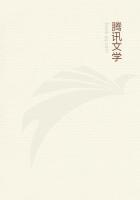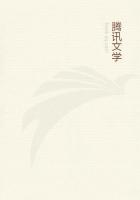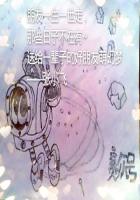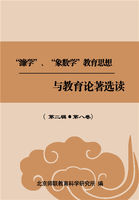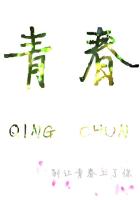I went home to Ohio; and sent on the bond I was to file in the Treasury Department; but it was mislaid there, and to prevent another chance of that kind I carried on the duplicate myself. It was on my second visit that I met the generous young Irishman William D. O'Connor, at the house of my friend Piatt, and heard his ardent talk. He was one of the promising men of that day, and he had written an anti-slavery novel in the heroic mood of Victor Hugo, which greatly took my fancy; and Ibelieve he wrote poems too. He had not yet risen to be the chief of Walt Whitman's champions outside of the Saturday Press, but he had already espoused the theory of Bacon's authorship of Shakespeare, then newly exploited by the poor lady of Bacon's name, who died constant to it in an insane asylum. He used to speak of the reputed dramatist as "the fat peasant of Stratford," and he was otherwise picturesque of speech in a measure that consoled, if it did not convince. The great war was then full upon us, and when in the silences of our literary talk its awful breath was heard, and its shadow fell upon the hearth where we gathered round the first fires of autumn, O'Connor would lift his beautiful head with a fine effect of prophecy, and say, "Friends, I feel a sense of victory in the air." He was not wrong; only the victory was for the other aide.
Who beside O'Connor shared in these saddened symposiums I cannot tell now; but probably other young journalists and office-holders, intending litterateurs, since more or less extinct. I make certain only of the young Boston publisher who issued a very handsome edition of 'Leaves of Grass', and then failed promptly if not consequently. But I had already met, in my first sojourn at the capital, a young journalist who had given hostages to poetry, and whom I was very glad to see and proud to know.
Mr. Stedman and I were talking over that meeting the other day, and I can be surer than I might have been without his memory, that I found him at a friend's house, where he was nursing himself for some slight sickness, and that I sat by his bed while our souls launched together into the joyful realms of hope and praise. In him I found the quality of Boston, the honor and passion of literature, and not a mere pose of the literary life; and the world knows without my telling how true he has been to his ideal of it. His earthly mission then was to write letters from Washington for the New York World, which started in life as a good young evening paper, with a decided religious tone, so that the Saturday Press could call it the Night-blooming Serious. I think Mr. Stedman wrote for its editorial page at times, and his relation to it as a Washington correspondent had an authority which is wanting to the function in these days of perfected telegraphing. He had not yet achieved that seat in the Stock Exchange whose possession has justified his recourse to business, and has helped him to mean something more single in literature than many more singly devoted to it. I used sometimes to speak about that with another eager young author in certain middle years when we were chafing in editorial harness, and we always decided that Stedman had the best of it in being able to earn his living in a sort so alien to literature that he could come to it unjaded, and with a gust unspoiled by kindred savors.
But no man shapes his own life, and I dare say that Stedman may have been all the time envying us our tripods from his high place in the Stock Exchange. What is certain is that he has come to stand for literature and to embody New York in it as no one else does. In a community which seems never to have had a conscious relation to letters, he has kept the faith with dignity and fought the fight with constant courage. Scholar and poet at once, he has spoken to his generation with authority which we can forget only in the charm which makes us forget everything else.
But his fame was still before him when we met, and I could bring to him an admiration for work which had not yet made itself known to so many;but any admirer was welcome. We talked of what we had done, and each said how much he liked certain thing of the other's; I even seized my advantage of his helplessness to read him a poem of mine which I had in my pocket; he advised me where to place it; and if the reader will not think it an unfair digression, I will tell here what became of that poem, for I think its varied fortunes were amusing, and I hope my own sufferings and final triumph with it will not be without encouragement to the young literary endeavorer. It was a poem called, with no prophetic sense of fitness, "Forlorn," and I tried it first with the 'Atlantic Monthly', which would not have it. Then I offered it in person to a former editor of 'Harper's Monthly', but he could not see his advantage in it, and I carried it overseas to Venice with me. From that point Isent it to all the English magazines as steadily as the post could carry it away and bring it back. On my way home, four years later, I took it to London with me, where a friend who knew Lewes, then just beginning with the 'Fortnightly Review', sent it to him for me. It was promptly returned, with a letter wholly reserved as to its quality, but full of a poetic gratitude for my wish to contribute to the Fortnightly. Then Iheard that a certain Mr. Lucas was about to start a magazine, and Ioffered the poem to him. The kindest letter of acceptance followed me to America, and I counted upon fame and fortune as usual, when the news of Mr. Lucas's death came. I will not poorly joke an effect from my poem in the fact; but the fact remains. By this time I was a writer in the office of the 'Nation' newspaper, and after I left this place to be Mr. Fields's assistant on the Atlantic, I sent my poem to the Nation, where it was printed at last. In such scant measure as my verses have pleased it has found rather unusual favor, and I need not say that its misfortunes endeared it to its author.


